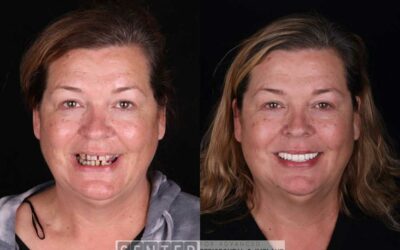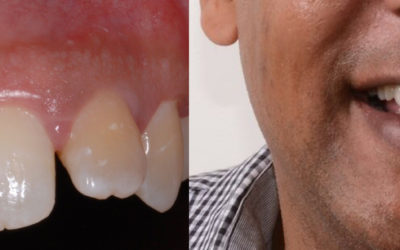Can You Get Dental Implants Years After Extraction?
Do you have a missing tooth? While it’s common to get dental implants immediately after a tooth extraction, that isn’t always the case. You may still be able to get a dental implant even if it’s been years after the extraction or removal of your tooth.
At the Center for Advanced Periodontal & Implant Therapy, our Los Angeles implant experts can make your smile reconstruction a reality, even if you’ve gone years since having your teeth removed. If you want to get a dental implant, here’s what you need to know.
Why Do People Get Dental Implants Right After a Tooth Extraction?
One of the reasons why dental implant surgery is performed alongside of a tooth extraction is to minimize the need for a bone graft. When a tooth is removed, the bone around that space starts to resorb (shrink.) Since we need bone to support both natural teeth and dental implants, bone loss can jeopardize your candidacy for dental implants. Immediate implant surgery helps you take advantage of your current bone levels.
Immediate dental implant placement may be ideal, but it isn’t always an option. Especially if the tooth extraction is because of an emergency, severe infection, trauma, or something similar. Extractions are a relatively affordable procedure, and some people may choose to wait a few months before deciding what route to take for tooth replacement.
What if You Wait Years for a Dental Implant Procedure?
If you’ve gone years with a missing tooth and are just now ready to get a dental implant, you may be completely fine. The main goal is to determine if you need a bone graft prior to the dental implant surgery. The graft needs at least a few months to “take” before an implant can be installed.
Dental implants help promote healthy, strong bone levels around the surface of the dental implant as well as adjacent natural teeth. The material that the implants are made out of is naturally attractive to bone tissue, helping secure them and promote a reduction in bone loss.
Grafting is common even if you already had a partial denture or traditional fixed bridge. While the spacing of your teeth may be the same, the bone support under your gum tissues likely won’t be. So, our bone grafting experts will want to take steps to ensure a sound foundation to install the dental implants.
Will I Need Bone Grafts?
Whenever dental implants are being placed years after tooth extraction or loss, there is a high chance that you will need bone grafting prior to the dental implant installation. During bone grafting, your oral surgeon will place donor or synthetic bone materials into the jawbone where the dental implants are going to be installed. The graft strengthens that area as well as reinforces the tooth root in any surrounding teeth.
After the bone density shows full integration of your graft (as seen on a dental X-ray), the dental implants can be installed. 3D scanning may also be necessary. Depending on the situation, it may be possible for our dentists to place the implants in a slightly different location or at an angle to maximize your current jawbone density.
Bone augmentation is also used if you’re replacing missing teeth in the upper arch in combination with sinus lift surgery.
Dental Implants Aren’t Only for Immediate Tooth Loss
During the early years of dental implant development, oral surgery wouldn’t always be performed immediately after having a tooth extracted. Sometimes it was years or decades later to replace missing teeth when options like dentures or a partial denture were inadequate. Instead of creating a new denture, another tooth replacement option was used.
As research improved and it became easier to get a dental implant or implant dental bridge, more people began requiring oral surgery or grafting to address bone mass issues. This personalized treatment plan allows for a dental implant years after you initially required replacement teeth. Our Los Angles implant experts can adjust your care plan to fit whatever situation you’re dealing with.
Why Work With Our Los Angeles Implant Specialist
Proper support and integration of your implant post is the most important aspect of your new dental restoration. If it’s been years since you’ve lost a tooth and your jawbone is beginning to resorb in those spaces, a traditional dentist’s office may not have the resources needed to safely insert the implant into your jaw.
Patients with extensive jawbone shrinkage will typically see better and more efficient results when they work with a dental specialist, especially if they’re getting their dental implant years after they lose their teeth.
Implants have three components. The implant post, abutment, and the fixed dental crowns or bridges that go on top of them. The biocompatible material of your implants needs a few months to fully integrate with the surrounding jawbone before they can support a dental crown or bridge.
Having specialists like Dr. Aalam and Dr. Krivitsky on your side to ensure proper installation, grafting, or other supportive steps will allow for the best outcome. Our implant dentists can even work with your existing dentist if there are patients who want to see us for the installation phase of their implant therapy.
Are Dental Implants Right for You?
Each of our new patients will have a chance to talk with our dentist to learn more about what options are available. Some patients need single tooth implants, while others need to address other teeth at the same time. If we feel that your jaw is dense and healthy enough for implants, our expert dentist will create a care plan that outlines each step of the process.
Our existing and current patients will tell you how life-changing dental implants can be! Even if you’ve gone months or years with missing teeth, it’s never too late to take steps toward oral surgery and rehabilitation with implants.
Reserve an Appointment Today
Contact the Center for Advanced Periodontal & Implant Therapy today via phone or our website to reserve a no-obligation consultation. Our Los Angeles implant dentist will be happy to answer any questions you have.
You May Also Like...
Is Getting a Dental Implant Painful? Insights and Expectations
Did you know that over 3 million people have dental implants, and that number is growing by 500,000 annually? Despite...
Elevating Dental Implant Standards in Los Angeles for Patient Safety
Sarah's Implant Journey: A Testament to Transformation Meet Sarah. Three years ago, Sarah avoided mirrors, rarely...
Comparing Immediate Load vs. Traditional Dental Implants
Dental implants have revolutionized the way we replace missing teeth. They're not just prosthetics; they restore the...



